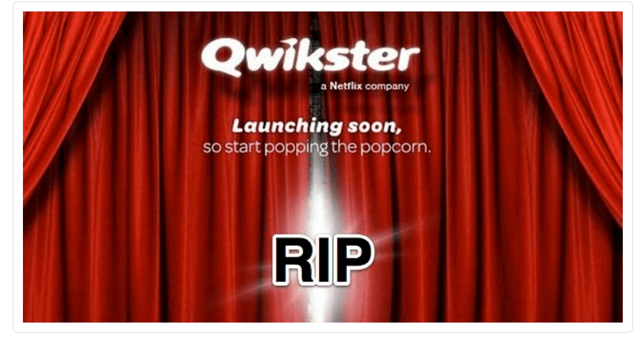
Are you basing your tech startup's marketing plan on assumptions or data? Not validating your assumptions can do serious damage to your ability to successfully launch your brand.
A wrong assumption can be toxic for any marketing strategy. There simply isn't any room for false assumptions when you need to measure every move and account for every dollar while managing your startup's marketing strategy. Boldly assuming that you already know what your customers need and how to deliver it to them can prove to be a fatal mistake.
Never Assume What The Customer Wants
Every business would be successful if knowing what customers want was as easy as making a few assumptions without doing research. The reality is that you have to look deep beneath common perceptions and conventional wisdom if you want to build a successful brand.
Common Reasons Why Brands Chase False Assumptions
The same story seems to play out over and over again when it comes to startups that fail. Failure mostly comes down to a disconnect between what a startup offers and its marketing team's ability to convey its value to the right people. The most common reasons why assumptions are allowed to prevail without getting validated are:- Marketing teams are afraid to stand up to the faulty assumptions of brand leaders or investors
- Startup leaders haven't developed a brand persona to target
- Startup leaders overestimate the reach of their products or services
- Marketers base efforts around outdated assumptions that used to be true
- Startup leaders don't want to put money into research and data
What Are You Risking When You Don't Validate Assumptions?
The most obvious and painful risk you're taking when you don't validate assumptions is that your startup will release a product that is viewed as being completely out of touch with what people want. Many products and services that have come to fruition without proper validation regarding how to market them are then perceived by the public as being:- Difficult to use
- Hard to understand
- Too ahead of their time
- Too expensive
- Not executable in real-life scenarios
- Lesser versions of existing products
Validation Must Be Prioritized
You're likely to find yourself in a situation where your startup company is throwing good money at bad ideas if you don't validate assumptions early and often. It's not very useful to work on validating assumptions after you've already launched your marketing plan. Validating your beliefs about your customers needs to take place before everything else.
How To Validate Your Assumptions
It's going to take some research and resources to validate the assumptions you're basing your marketing launch on. It is helpful to validate assumptions using a series of questions that can be answered using market research and data mining. Here are the key questions you need to be able to answer using factual insights before you can market your product:- What is the target market I created my product or service for?
- How large is the size of my market?
- Does my product solve an isolated or recurring problem that people in this market are searching for?
- Are there actual people and companies willing to pay for the product I've created?
- Is there anything I need to change about my product or message to become better aligned with the market I've identified?
Going Deeper Into Validating Demand For Your Products
You're going to need to use multiple data sources and resources to honestly validate the projected demand for the product or service your startup offers. What are some cost-effective ways a startup can begin validating demand-related assumptions? Your first steps should include:- Looking at industry reports
- Viewing sales, online traffic, growth and other indicators regarding competitors
- Using the tools on Google AdWords to see how many searches related to your market are occurring per month
- Using surveys to gauge interest
Investigate The Liability Of Your Assumptions
Is there an assumption that will make your product or service completely non-viable if it's proven wrong? This assumption needs to be investigated thoroughly before you can proceed with your marketing efforts. You'll also want to work your way to broader assumptions eventually. Of course, most startups don't have the resources to spend time investigating every assumption. You can get to these as you develop a strategy for pursuing bigger market opportunities once all of your key assumptions have already been validated or negated.
The Crime Of Overconfidence
Startup leaders are always in selling mode. They are working around the clock to create hype and buzz about their projects. This can sometimes lead to overconfidence. After all, telling everyone you meet that you're launching the next big thing can make you convince yourself that you're already the next Steve Jobs. While confidence is essential for being the face of a startup, it can also cause you to fall into the trap of believing too much hype without having the data to back it up. Overconfidence is heavily linked with incorrect assumptions can cause startups to falter for the following reasons:- Experienced marketers start relying on intuition over facts
- You're trusting something that worked in the past under a seemingly similar situation that was actually different in nuanced ways
- Positive or negative feedback from one customer influences future customer-related decisions too heavily
How About Learning A Lesson From The Players
Not knowing your target audience or just doing the guesswork could cost you heavily. Here are a couple of examples, where big companies failed when they didn't validate their idea with their target audience.
Gap
In October 2010, Gap decided to let go its logo and launched a new logo in an attempt to be more hip and modern. Guess how long that lasted? Just 2 days!
Why? The idea was to resonate with the happening millennials but it backfired since the brand is known for its daily wear. So, its loyal customers assumed that the company is not only changing its logo but the line of clothing as well and getting into the trendy wear. Gap didn't realize that new logo wouldn't go well with its target audience and thus, changed back to its old one.
Lesson? Stay in touch with your buyer persona and don't assume their behavior. Customers get very emotional about the brands they love, so don't ignore their feelings.

Netflix
In 2011, Netflix was doing really well with a $16 billion market value with their mail oder DVD rental and decided to enter the digital streaming market with a new brand "Qwikster". Sadly, the idea failed since splitting the company didn't make its loyal customers happy.
Why? The company thought digital streaming would be an easy alternative to mail order DVDs, this made things really complicated for customers. This decision not only confused them but also resulted in a 60% price increase for those who wanted both the services. According to CNET, the company lost 800,000 subscribers and its stock price dropped 77% in four months.
Lesson? In this fact-paced buisness environment, the decision has to be relevant and practical. Never confuse your custoemers and make sure to be proactive in announcing thechange before implementing it.

There's Nothing To Lose From Validating Assumptions
Most successful leaders know that intuition is a powerful force. However, the reality is that the business world doesn't run on feelings or chance. Most success is the result of good data, preparation and persuasion. There is nothing to lose by taking steps to validate assumptions that will have a heavy impact on the performance of your tech startup. Failing to remove incorrect assumptions at the start of your launch could cause you to miss the mark and lose the opportunity to offer what your customers want.


